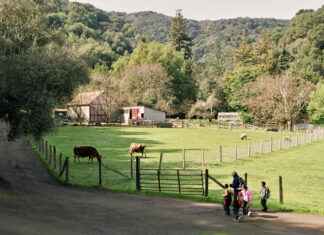Sign up for one of our email newsletters.
Updated 2 hours ago
Members of Greensburg Salem School District's facilities advisory committee hoped making school buildings more energy-efficient could save enough to pay for renovations.
It turns out that the buildings are much more efficient than expected.
“That was kind of surprising to us because we thought old buildings, there would definitely be places where we'd be losing energy,” said committee member Carrie Vottero, the high school librarian.
Schneider Electric recently completed an energy audit of all district facilities. The company found a few ways to save money, like swapping out traditional light bulbs for LEDs, but nothing to make a significant dent in the budget, said committee co-chairman Chris Suppo, district coordinator for technology, transportation and community relations.
“There's not a tremendous amount that could be saved to support other, larger projects,” he said.
The facilities committee formed in 2015 to look for ways to maintain buildings.
A 2015 architectural study found the district's decades-old heating, plumbing and electrical systems can't be maintained much longer.
“As a district, our buildings are old and they're showing wear. … We definitely need to take a look at what we need to be doing with them,” Vottero said. “We're trying to find out if it's more cost-efficient to repair things or replace things, or a little of both.”
Cost is the biggest concern. The district budget has had a deficit for years, and the needed improvements will be costly.
Audit results show the district hasn't wasted money through energy inefficiency, which is good, said committee co-chairman and school board President Ron Mellinger. But it means there are no easy answers about how to pay for renovations.
“They told us our buildings were more efficient than any audit they've ever done,” he said. “Who would have thought that?”
Schneider Electric performed the audit for free. If the district hires the company to make energy improvements, they will be paid for over time from the ensuing savings.
Although the audit didn't uncover savings that committee members hoped for, it is a useful look at the condition of district buildings, Suppo said. The committee will meet again in March to study audit results in more detail and discuss what to do next, he said.
“It's another good resource for us,” Suppo said. “I think that will help the committee as a whole as they try to grapple with our buildings and the aging facilities in the district.”
Jacob Tierney is a Tribune-Review staff writer. Reach him at 724-836-6646 or jtierney@tribweb.com.
Our editors found this article on this site using Google and regenerated it for our readers.






